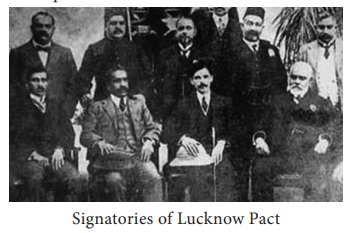Anti-Colonial Movements and the Birth of Nationalism | India - Home Rule Movement (1916–1918) | 10th Social Science : History : Chapter 7 : Anti-Colonial Movements and the Birth of Nationalism
Chapter: 10th Social Science : History : Chapter 7 : Anti-Colonial Movements and the Birth of Nationalism
Home Rule Movement (1916–1918)
Home Rule Movement (1916–1918)
The
Indian national movement was revived and also radicalised during the Home Rule
Movement (1916-1918), led by Lokamanya Tilak and Annie Besant. World War I and
Indian’s participation in it was the background for the Home Rule League. When
Britain declared war against Germany in 1914, the moderate and liberal
leadership extended their support to the British cause. It was hoped that, in
return, the British government would give self-government after the war. Indian
troops were sent to several theatres of World War. But the British
administration remained non-committal to such goals. What was seen as a British
betrayal to the Indian cause of self-government led to a fresh call for a mass
movement to pressurise the British government.
(a) Objectives of the Home Rule Movement
• To attain self-government within the British
Empire by using constitutional means.
• To obtain the status of dominion, a political
position accorded later to Australia, Canada, South Africa, and New Zealand.
• To use non-violent constitutional methods to
achieve their goals.
(b) Lucknow Pact (1916)
The Home
Rule Movement and the subsequent reunion of moderate and the militant
nationalists opened the possibility of fresh talks with the Muslims. Under the
Lucknow Pact (1916), the Congress and the Muslim League agreed that there
should be self-government in India as soon as possible. In return, the Congress
leadership accepted the concept of separate electorate for Muslims.

(b) British Response
As the
demand for Swaraj was raised by Tilak and Annie Besant that gained popularity,
the British used the same old ploy to isolate the leaders by repressing their
activities.
In 1919
the British government announced the Montagu-Chelmsford reforms which promised
gradual progress of India towards self-government. This caused deep
disappointment to Indian nationalists. In a further blow the government enacted
what was called the Rowlatt Act which provided for arbitrary arrest and strict
punishment.
Related Topics